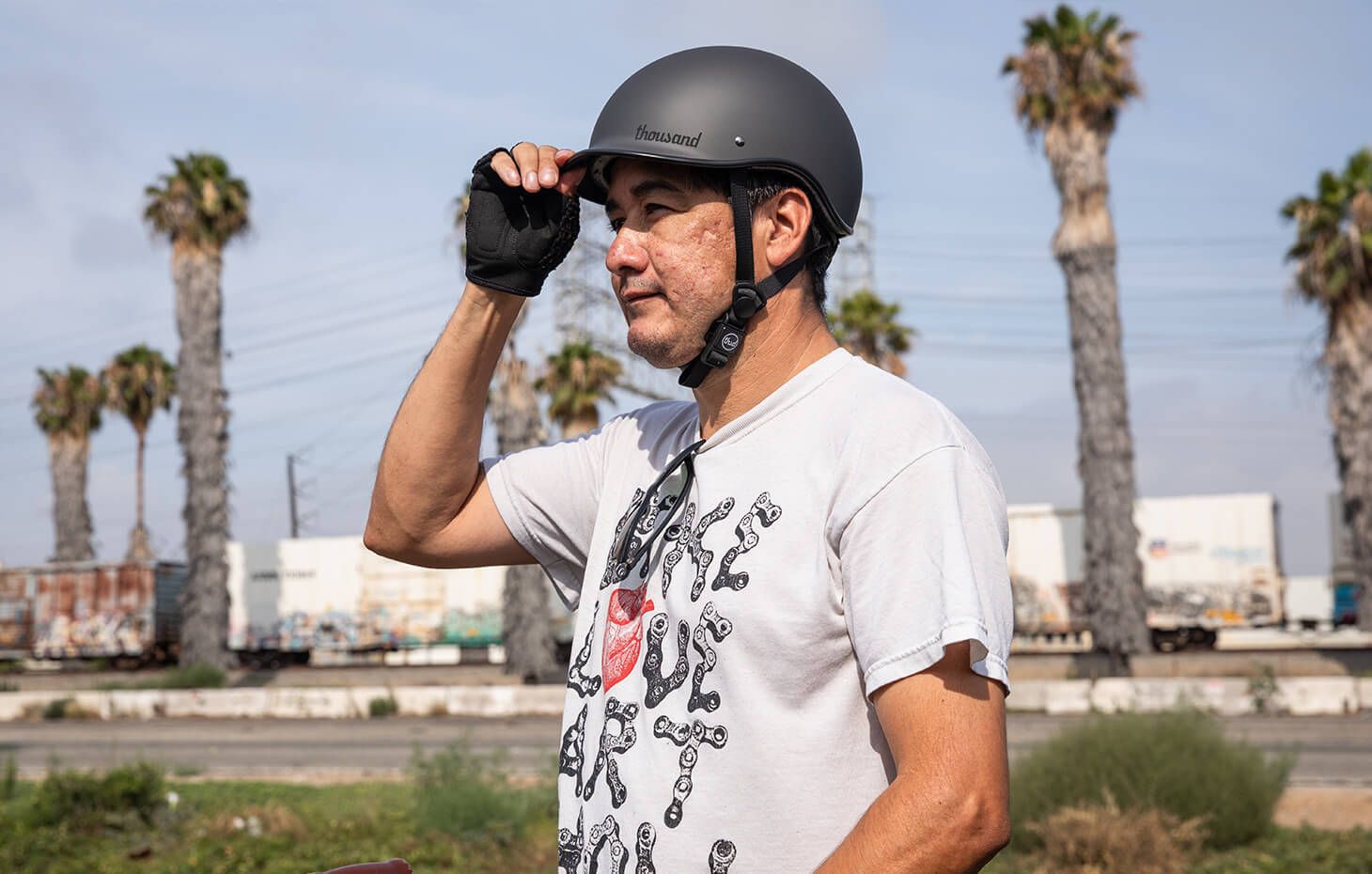
In our last feature, Tamika Butler asked us to shift our thinking about urban planning and realize that we can shape the way that new spaces and places affect our communities.
Danny Gamboa is showing us exactly how to do that. Danny is one of the founders of Healthy Active Streets (HAS), a non-profit organization whose mission is to educate, organize, and provide resources to underserved communities to achieve mobility equity and environmental justice.
HAS is based in Long Beach, where people of color are disproportionately injured and killed while using active transportation and disproportionately exposed to environmental pollution, largely due to port activities and goods movement. Through education, HAS chips away at socio-cultural barriers to biking that historically impinge on low-income communities of color, and through advocacy, they empower residents to affect the changes they want to see in their communities.
Learn more about how Danny stands up for his community and creates the change he wants to see.
Thousand: Tell us a little about yourself and Healthy Active Streets.
Danny Gamboa: I was born in Ciudad Juarez, Chihuahua and am a multi-disciplinary artist based out of North Long Beach, CA. I'm also the co-founder of Healthy Active Streets, which was established in 2013 as Empact Communities with the goal to use the bicycle as a tool to empower communities of color, women, youth, and other disenfranchised groups. Our mission is to educate, organize, and provide resources to these communities to achieve mobility equity and environmental justice.

T: When and why did you start to get involved with Healthy Active Streets?
DG: I love my communities. I am passionate about using art as a medium for social change. As the Director of SELA STRONG, I was compelled to share a series of short documentaries and stories of resilience during South East Los Angeles’ response to COVID-19 and social justice uprising. I am part of the Ghost Bike project, which blends art and advocacy by installing a “ghost bike,” a bike painted white, at the site of a collision where a cyclist was killed or died as a result. Ghost bikes serve as a visual cue to drivers to be aware of their surroundings, cognizant of their speed, and mindful of vulnerable populations using the roads as well.
This project ultimately led me to establish Healthy Active Streets as a way to empower communities of color for mobility equity and environmental justice through active transportation advocacy, organizing and events, direct action, and positive activism.

T: What are some of the current projects and campaigns you’re working on?
DG: Just Environment Long Beach: HAS is based in Long Beach, where people of color are disproportionately injured and killed while using active transportation and disproportionately exposed to environmental pollution, largely due to port activities and goods movement. We address these inequities by developing environmental justice policy as a part of the Just Environment Long Beach collaborative. Together, we provide bike safety classes and how-to-ride-a-bike workshops in communities of color; bike mechanics workshops; motorcycle safety education; train youth in civic engagement (i.e. speaking to City Council Members, participating in focus groups for city plans); and other youth programming.
Mobility+ MultiMoto: We recently started this workshop for women, non-binary, LBGTQ+, and BIPOC folx that want to learn about motorcycle riding for transportation, fun, and community; in a safe way and in a safe space. We also expose folx to government and manufacturer rebate programs on Zero Emissions vehicles. We are holding online workshops, and eventually in person sessions, with the goal of teaching and encouraging folx to ride more and drive and pollute less.
Metro Adopt-a-Bike: We've partnered with Metro to restore bikes that were left behind on buses and trains and unclaimed, then re-distribute those bikes to the community for free. These bikes used to be sold off at auction, which excluded many people in our community who needed a bike but still couldn't afford one. Now, we host bike repair workshops twice a month to teach valuable bike repair skills while fixing bikes for the community.

T: What are some ways people can get involved in equity, justice, and harm reduction in their own communities?
DG: One of the most important first steps you can take is educating yourself on anti-racism. Anti-racism involves actively identifying racism and racist structures (including privilege and power) and working to make the world (or your community) more fair, just, and equitable for everyone.

T: How can our community support Healthy Active Streets?
DG: First and foremost, as a motorist, please always be aware of cyclists and share the road with others. Then, join our events; donate time, bicycles, and/or money; and follow us on social media (Twitter, Instagram, Facebook).
Want to join Healthy Active Streets in creating better communities? Learn more here.

